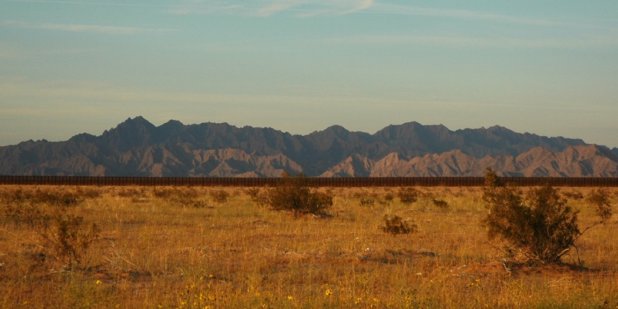- About
- Topics
- Picks
- Audio
- Story
- In-Depth
- Opinion
- News
- Donate
-
Signup for our newsletterOur Editors' Best Picks.Send
Read, Debate: Engage.
Just recently, criminals tried (once again) to prevent refugees from moving into a home for asylum seekers in Germany. This time it was a butyric acid attack. Unfortunately, scenes like this are not uncommon. They happen nearly daily. In the first half year of 2015 there were 202 attacks on refugee shelters in Germany. But there are also signs of hope. Like these five German projects that proof - integration of refugees works.
1. Workeer
Workeer is the first German training and job market, which is specifically aimed at refugees. The platform creates a suitable environment in which refugees meet to this group of jobseekers positive-minded employers. At the moment 114 employers and 99 jobseekers have registered.
The platform is a complementarywork of BA Communication Design studies at the HTW Berlin in summer 2015. The project shall be continued and need supporters.
2. District mothers and fathers
Since 2011, women and men put their efforts in the project "Stadtteilmütter und Stadtteilväter in Kreuzberg" (mothers and fathers in the neighborhood of Berlin's district Kreuzberg) to gain a greater participation of parents with an immigrant background in their neighborhood. The visual "trademark" is a red scarf. By using expertise and a lot of passion their commitment is succesful. The concept is spreading throuhgout several districts of Berlin.
3. save me - hosting refugees
The campaign "save me - hosting refugees" is committed to the willingness to accept refugees at local scale. Many refugees are stranded in neighboring countries and must sometimes wait years before they can take the perilous journey to Europe. They spend their lives in makeshift camps. "save me" begins exactly there: The project has set itself the goal, to take in the refugees in Germany, before they go on their own on the risky journey.
So far there are local save-me-campaigns in more than 50 German cities, more than 100 supporting Organisations, more than 9.000 supporters germanwide, council decisions in 49 German cities till now ... and growing acceptance.
4. CUCULA
‚Cucula’, originates from the Hausa language in western central Africa, and means ‚to do something together’, as well as ‚ to take care of each other’.
CUCULA is an association, a workshop and an educational program all in one. It is for and together with refugees in Berlin.
In contrast to the theoretical debate about the situation of refugees in Germany, the initiators strive for a pragmatic, immediate and action-oriented approach. The aim and object is to achieve something “together with” the refugees and not simply “for them”.
Launching as a pilot project, CUCULA wants to give people, for whom the doors of society are locked, access to education. CUCULA wants to establish a ‘welcoming culture’, which helps refugees to break with the notion of ‘victimhood’, and at the same time unfold their self-efficacy and to open up a perspective for a self-determined life. Arriving, building ones own future, experiencing self-efficacy, instead of being ‘administrated’ and deported – these are the project’s main motives.
5. We have arrived
Together with young refugees living in Germany UNHCR and the German Federal Association for Unaccompanied Minor Refugees eV (BUMF) have produced a short film. The project aims to make refugees not only visible, but connect us all with their stories to understand. Young people from different countries of origin are in front and behind the camera. In "We have arrived" they address both their own history as well as that of other refugees living in Germany for some time.
